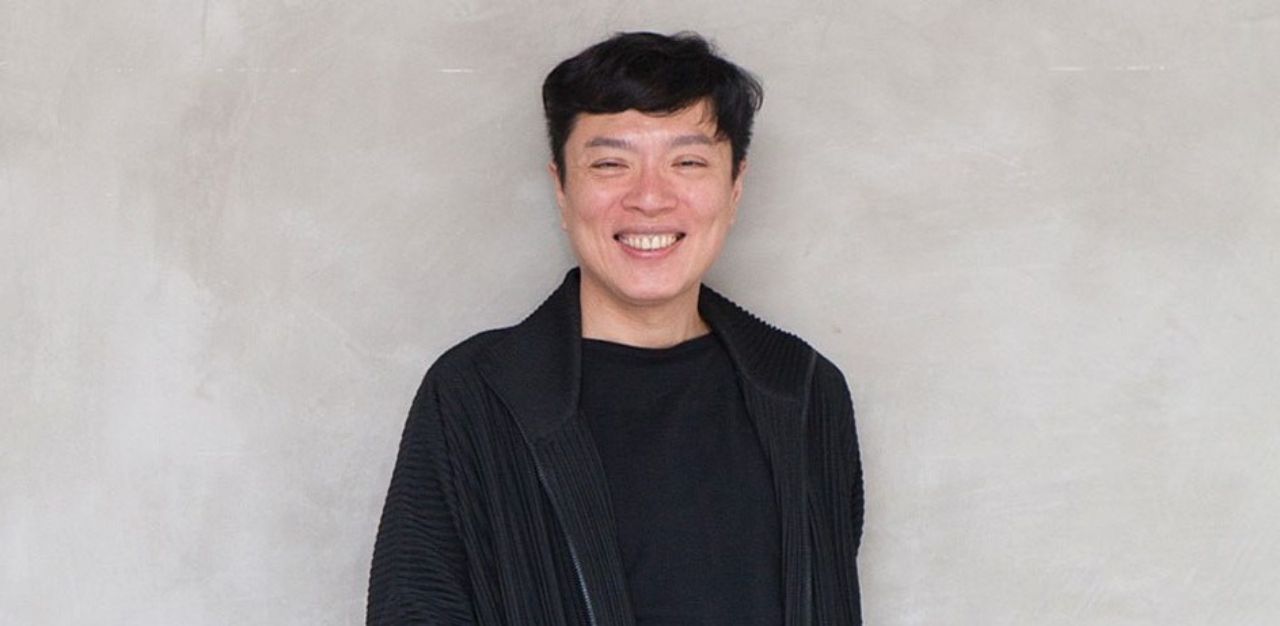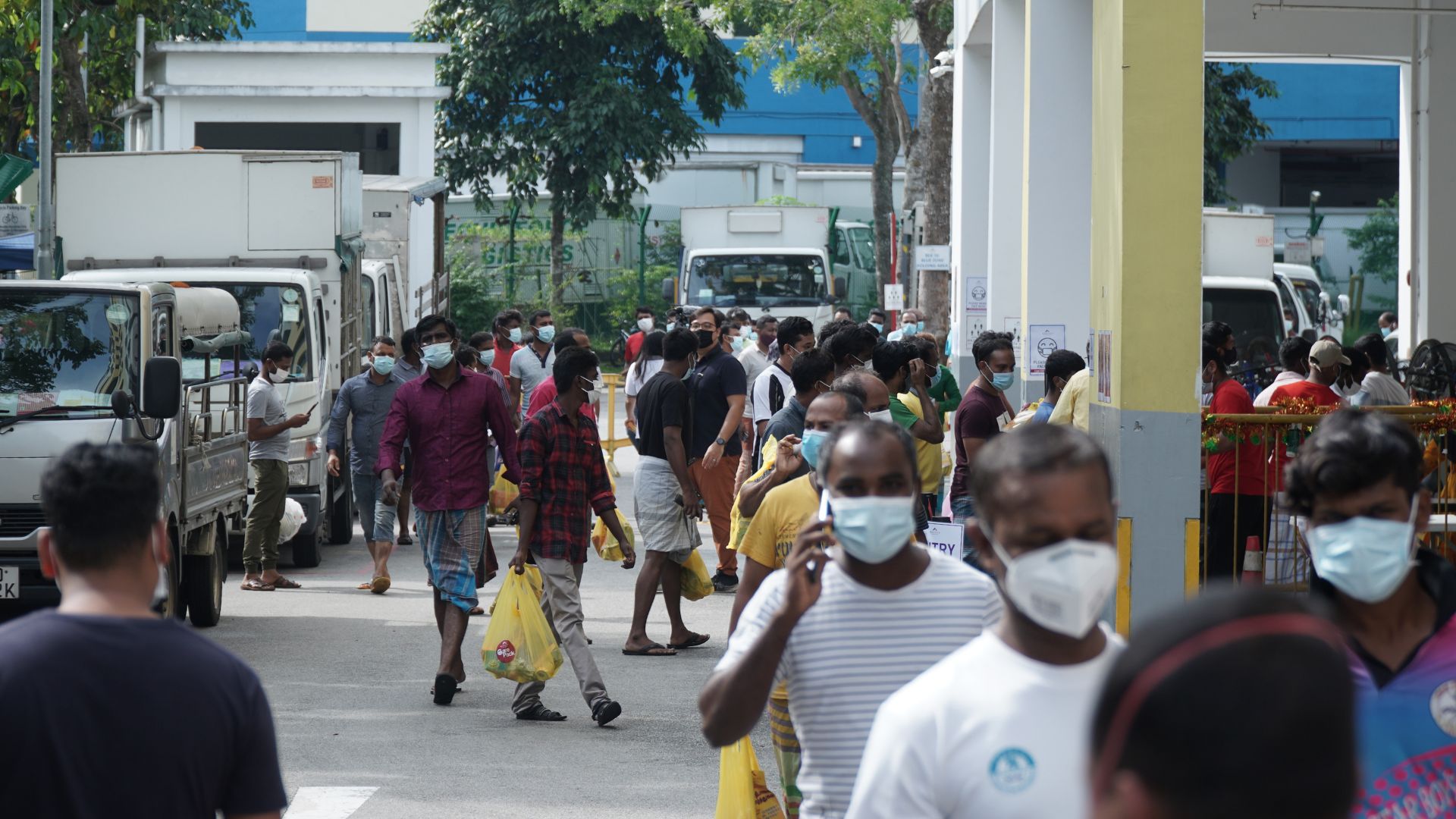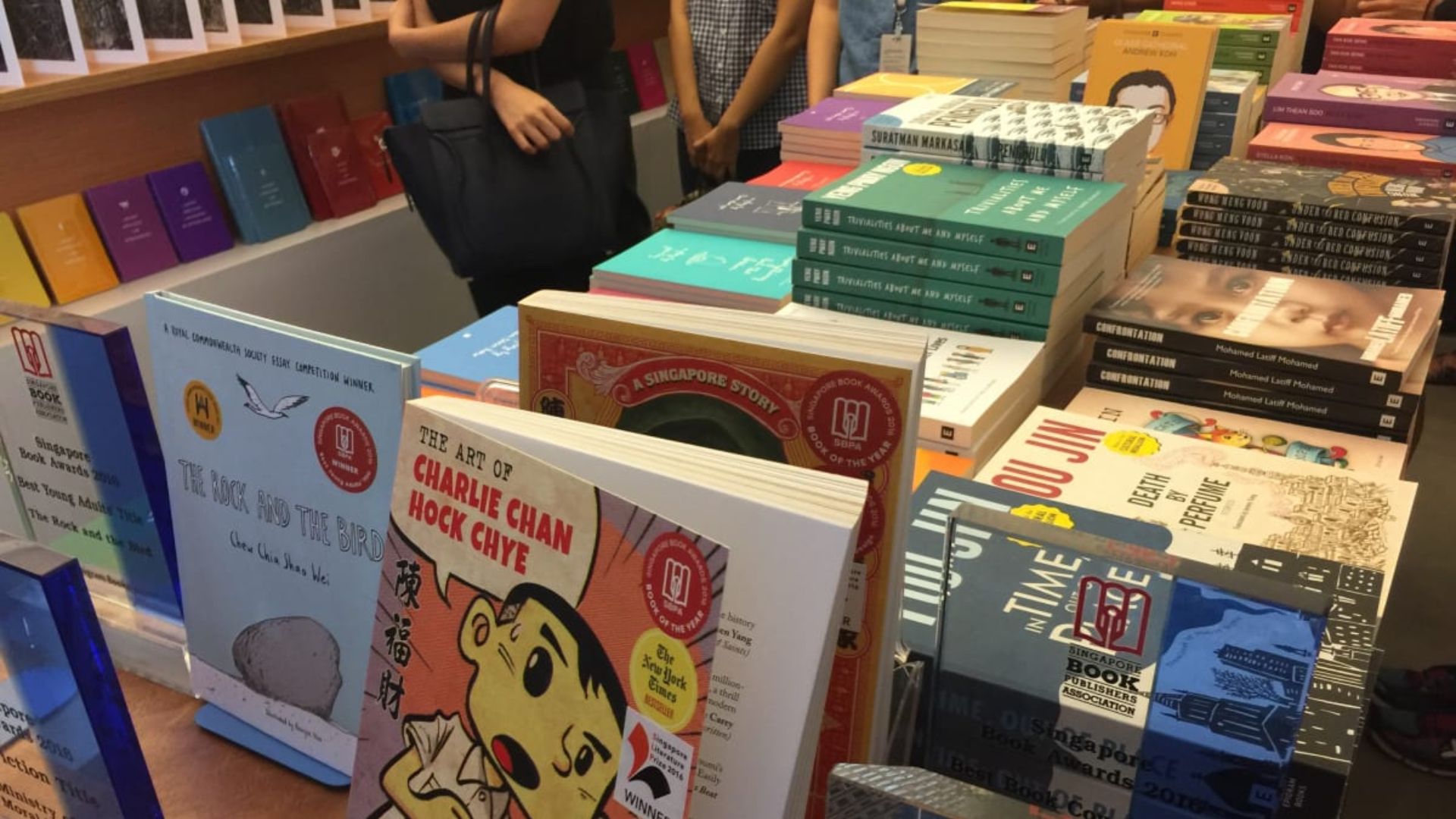Through our new series of weekly interviews called In Conversation With, TheHomeGround Asia amplifies and celebrates the ideas, achievements and experiences of extraordinary individuals, who are creating ripples in their industry in unique ways. Our second installment features Ong Keng Sen, whose invaluable contributions to the theatre scene has made a deep and lasting impact on the Singapore arts community. Dr Ong is the Artistic Director of local theatre company T:>Works.
Despite graduating a lawyer, Ong Keng Sen’s passion for the arts led him to carve an illustrious life in drama and theatre. His journey began when he joined a non-profit theatre initiative, The Stage Club, one of the pioneers in Singapore’s theatre scene established in 1945. This sparked a long and celebrated career in the arts, including becoming the first Singaporean and Asian to be commissioned by the House of World Cultures and the Festspiele Berlin to curate the In-Transit international arts festival in 2002 and 2003. Back home, he was festival director of the Singapore Festival of the Arts, an annual performing arts festival, from 2014 to 2017.
Dr Ong’s sharp intellect is apparent, where as a Fulbright scholar he studied intercultural performance at the New York University Tisch School of the Arts, graduating in 1995. And went on to obtain a PhD in performance studies at the same institution in 2019. He is equally eloquent when sharing his vision for transforming and deepening the meaning of the arts in Singapore, managing to distil his incisive and pithy observations of the world and how they translate into his artistic practice that is at once expansive and inclusive.
He says, “I think being an artist is also about being porous to the world… all these things that are affected outside, coming into your space. [Maybe] you cannot make a show immediately about it, but you can make processes to respond to it.”
Indeed, his brilliance and contribution to theatre making has been widely acknowledged, receiving a number of awards that recognise excellence in the arts, including the Singapore Young Artist Award for Theatre in 1993 and the Cultural Medallion in 2003.
In the mid-90s, Dr Ong’s interest in interculturalism led him to start the Flying Circus Project, a multidisciplinary arts programme that featured international artists and cultural workers, and included performances, exhibitions and workshops.
He has also directed dozens of acclaimed theatre productions that have been performed in Singapore and around the world, such as Rio Kishida’s reinterpretation of Shakespeare’s King Lear in 1997, and The Incredible Adventures Of Border Crossers, which opened the inaugural Singapore Festival in France, and was held at the Paris Palais de Tokyo, in 2015.
Since returning to helm theatre company T:>Works, formerly known as TheatreWorks, as Artistic Director, Dr Ong has unveiled the group’s plans for the coming decade. PerForm, for instance, is a new fellowship programme that aims to broaden artistic practices beyond Singapore and across varying disciplines.
He shares his exciting new vision for T:>Works, the importance of knowledge production within the arts, and the essential role of the artist in Singapore’s arts landscape.
NOTE: This interview has been edited for clarity and length.
Ong Keng Sen: A lot of other people have come into the arts from vernacular engagement [and] maybe even activist spaces, but I think what the arts propose is a free space where dialogue can occur, and opinions are put forth, including difference of opinions. This is where the arts is a progressive space, rather than just a finished product… [It’s] a growing space [where] different people are coming in, in particular, when [there’s] issues and discussions.
The HomeGround Asia: How has this informed how you planned this new phase of programming for T:>Works?
OKS: We started around 1996, to focus on processes. We had board directors who were vehemently against the [Flying Circus Project], where they [said], ‘Okay, what are you producing? You are nurturing a group of people who are not going to be doing productions for you. You’re not training an ensemble. You are not working with filmmakers, or artists to make the set or to design the installation.’
So you could hear those voices. But we’ve persisted since the late 90s, because we work in process a lot. And we then [became] some kind of informal discussion space, where it is more often with practitioners but at the same time, with PerForm, you can see that it touches across [different disciplines].
PerForm is a good vehicle for doing field work, to explore how the public [is] reacting to photographs of [a] set of certain stereotypes. It allows an avenue for that. We see that as the main development.
Before, we saw [that] young artists were the participants in alternative universities. Now that the space has opened up, new knowledge is being produced by everybody, there is no expert. Because when you come into a space like this, somebody is not an expert in the arts, but might be a healthcare expert. And maybe when it comes to dementia [for example], and how care is happening in dementia, this healthcare expert, who’s just an ordinary audience member, has a lot to share with us.
So PerForm tries to open up the space where the knowledge producer is also the audience. And this is then separate from the world of [the] Flying Circus [Project], where it was more about artists and young art students, and people who were practitioners, either in the early stages of their lives or of their career, or students going to be practitioners.
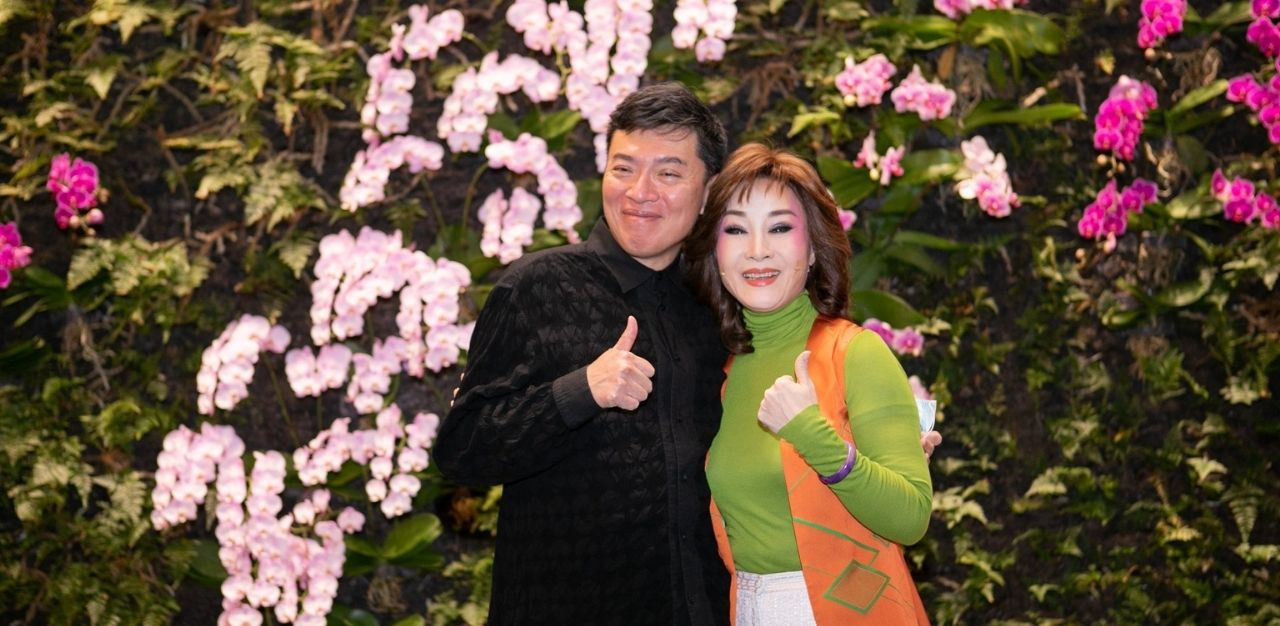
THG: With the idea of the artist as a thought leader, has this changed the role of artists invariably? And how can this correct the misunderstanding that artists are non-essential in society?
OKS: I don’t take that very seriously. I think what’s more damaging is when there are aspersions that artists cannot cope with their finances, cannot manage [or] have no knowledge to run their spaces, are unable to take care of whatever they have been given. That then becomes an issue, because there is projection that artists are inept. When there is a projection done by a voice of authority, that there was either negligence or lack of ability [of artists], then there is a misconception.
I think that there are many people in the field today who are trained and independent managers, and there are many artists who have had to, by virtue of being a DIY (do it yourself) scene, set up their own structures to work. [It] is not like we just go in and do [something], and [there is] other infrastructure surrounding us, [and] 50 people doing everything that we want… Very often, we have to DIY [and] set up the whole infrastructure [ourselves].
THG: Let’s talk about PerForm. It sounds very exciting – the notion of the arts as a space to produce knowledge, rather [than] just creating performative products. How do you think this makes art more quantifiable and tangible? And how do you think this would be different in the context of how T:>Works plans ahead?
OKS: I think that we are relating to larger issues facing the world. For example, there is climate change, but also labour. We could talk about our migrant workers, and not leaving them behind… But we don’t find it so productive to work so explicitly. Because we also think that it is interconnected. How the world is looking at migration, the worker, [and] the racism that surrounds the cheap labour force.
The migrant worker, itinerant worker, foreign worker – it’s worldwide, not just an issue [in Singapore]. Hence, we feel that it’s quite important to open this up to parallel [contexts] elsewhere, [such as] a migrant museum somewhere else, to bring that into juxtaposition with what’s happening here. Not in overt ways, but just to open up the space, because I think that we are so much in tunnel vision right now.
One of the overall effects of the pandemic is that people are living in a very closed world. Even though it’s broadened with digitalisation, it’s quite unreal… the outside world is very far away, and you get on the internet, but it just becomes a 2D space. [There are] lots of clever ideas being exchanged, but there is no lived experience. So one of the things with PerForm is to try to have a discussion which is layered, not just into the tunnel vision of the local context. Then we can see how parallel solutions are being found elsewhere or not being found, and where perhaps, they were found through indigenous or repressed knowledge.
Some curators have said that one of the largest, most interesting spaces of performance was by LGBTQ artists all over the world, because they have had to work underground. Their beginning premise is never about the public, but about very small publics. This kind of very deep localisation means that you have different solutions to issues.
In Singapore, [it] is always [about performing to] hundreds of thousands of people before [it is] worthwhile. While there are other communities worldwide who are just engaging with a hundred people who are at risk. And that is deeply effective, rather than touching lightly on hundreds of thousands of people who are there to get some fireworks.
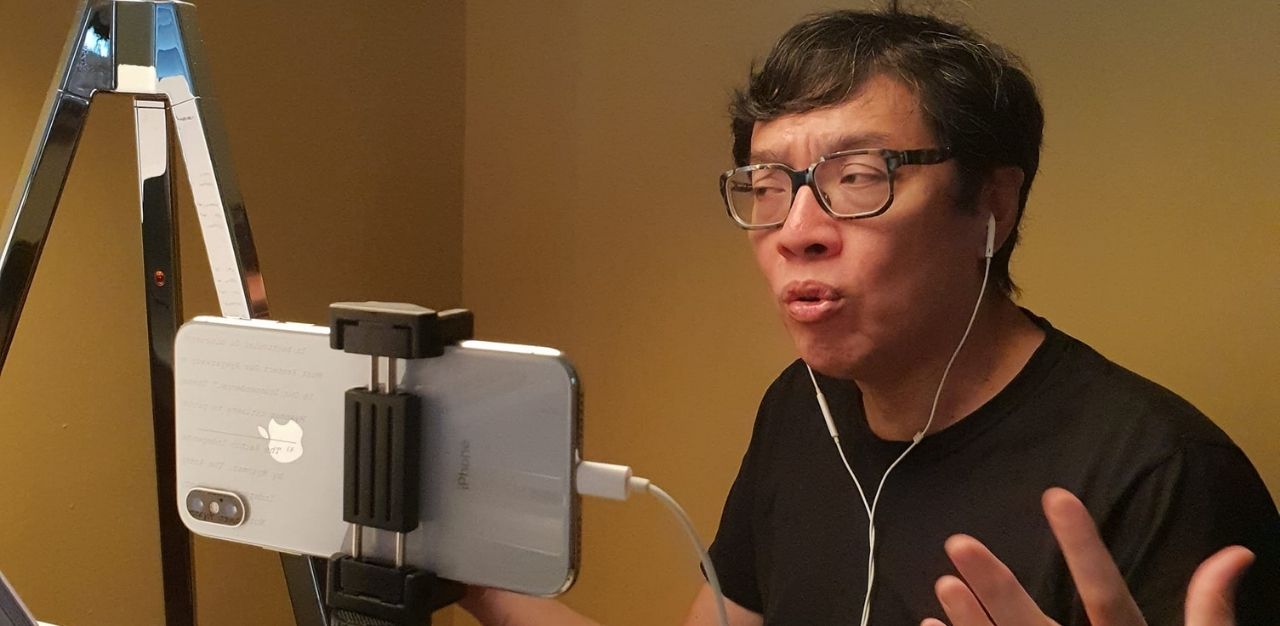
THG: How did you first conceptualise PerForm, what inspired you?
OKS: Since 2010, my whole dissertation [was] about remaining enchanted and how to develop a vision of the world beyond national borders. Of course, along the way, people are already writing about the planet, and about how the planet is something we all co-share, and have to be responsible for equally; not just the richer nations, the poorer nations also have common custodianship… [To] not just let the richer nations take the lead because we would not really be participating, we’re just following the conversation.
The conversation from the planet escalated and became FridaysForFuture. I was in Oslo at [the] time when FridaysForFuture was very big, as part of a group teaching a Master’s class there, and we went to look at the] performance of everyday life on that Friday with young people and what they were doing. So, these things begin as abstract spaces for studying performance, but then they begin to accumulate in yourself. Like, ‘What am I doing inside this space? What is my personal agency?’ It became almost necessary to then try to do something about the planet, but it’s something that is not going to be [resolved overnight]. It’s something that takes [a] longer plan, a longer arc.
Of course, along the way, we came into quite extreme situations of racism [and] sexism, I would say it’s all becoming more and more compressed. And you can feel a kind of struggle for limited resources, which starts to hype up the ante a little bit. Everybody becomes quite aggressive [in] fighting for the world they want, and for themselves, or for their communities.
I think being an artist is also about being porous to the world that you are [in], all these things that are affected outside, coming into your space. You cannot make a show immediately about it, but you can make processes to respond to it. And that’s why I normally only make one show a year. The rest of the time, I’m making more processes and enabling situations, because I feel like that’s where I can continue to be more effective, with students or creating a project in collaboration with many others like PerForm.
You’re first and foremost a human being in this space. And then, because you’re an artist, you try to respond in what you do best in this space, to try to make it into a more free space of discussion or dialogue.
THG: So you would transform this knowledge into something that’s practical, that would actually make societies more liveable?
OKS: Yeah. Right now, we’re facing the first challenge, which is how [to] get more scientists on board. The easy thing is to [look for an] ‘easy to get’ designer, artist, or writer. But when you think about scientists we have [nothing] to offer them. They must have an interest, let’s say, in biology and in music, perhaps. Then they might come in to look at molecules and how music is made [from molecules] or something like that, and then how it feeds back into public reception, and perhaps [how] this helps with individuals who are having attention span issues. It’s a space where one impacts the other. And I think that the challenge ahead will be how to get more scientists involved.
It’s a programme that will take time to evolve. One of the things we are looking at, process as opposed to product, is to see how we invest not just several years, but maybe a decade. Like what we did with the Flying Circus [Project], and cultural development.
I feel like these things are percolating. And we also have to trust that somehow the people who are listening and taking the information will start to use the knowledge in their own ways. It’s about trusting that if the knowledge is valuable it will be harnessed. So I feel that this whole trust equation is where we are fundamentally lacking in Singapore because the arts is asked to show that [it] can achieve [something], jump through the hoop, finish the hundred metres, the triathlon. Show that [it is] worthy of being supported, rather than [being trusted].
THG: What have you learned from your travels that has been useful for developing a deeper appreciation for the arts in Singapore, beyond it being merely for consumption?
OKS: What I am encountering in Taipei, Taiwan, I’m very fascinated by it… I feel like what is created is a society of people who really love art, who see art as being real space. It’s completely different… Our parents think from 30 years ago if you’re an artist you can’t feed yourself. But then when you say in Taiwan that you are an artist, and you’re making a show in some theatre, the general expression is that ‘Wow, that’s so great. That’s cool.’ I really feel a complete difference in the way in which young people in Singapore are becoming different now. But there’s no sense that being an artist is cool.
I think that they begin to feel that art is an important part of life. And not just something which is elitist, which has been the picture, which I feel ironically, that the [National] Arts Council creates. So is this really irony? It’s all interrelated, right? We talk about PerForm. And so we keep coming back to this to this topic, mainly because it’s about trying to break through the glass ceilings and the walls which actually affect art in Singapore, that PerForm is one way of trying to break through, to reach more people to get out of the silo of art, to see art as interconnected.
THG: Would you say this idea of knowledge production is also expanding that cycle of experience? And perhaps creating another dimension for the audience to appreciate and engage with the arts?
OKS: Yes, exactly. One of the things which we are faced more and more with is that we are having a kind of disenchantment with the world, that we are so jaded. Overall, there is a real sense that there is not much that we can do to change the world. PerForm brings us back to these small actions, and for us to remain enchanted, because we still need to believe [in order] to do something small. And PerForm is asking for that kind of commitment – “let’s perform together” – rather than “let’s see somebody else performing”. There’s a very subtle shift from that. That you are making the action rather than the actor.
THG: With regard to the concept of safe spaces, you mentioned that T:>Works has become a refuge for independent artists who have been displaced from their homes. How has T:>Works responded ?
OKS: For example, Centre 42 has a project called The Vault. [For] that project, theatre studies students reimagine work that was produced maybe 30 years ago in Singapore. And of course, Centre 42 has no space in the sense that it’s become a space for everybody. They came to us to [ask if they could] use our space and we just jumped in – it’s an emergency project. But we are realising [that] this is something which is getting more real. We’ve had other requests [from] people whose spaces were suddenly compromised… We just respond to requests as and when we can, and we are happy to do that.
Historically, there was a ban on performance arts, and we responded by embracing them into our theatre space. Now in the same way, this return or clawing back of spaces, results in a kind of situation where T:>Works has to respond in a slightly different [manner]. But because we have more at this time, we share that. I think that it is more important that the public understands what’s at stake, rather than a confusion or projection that this was badly managed by artists, and hence, we have to step in to take over. It’s just sharing whatever little we have.
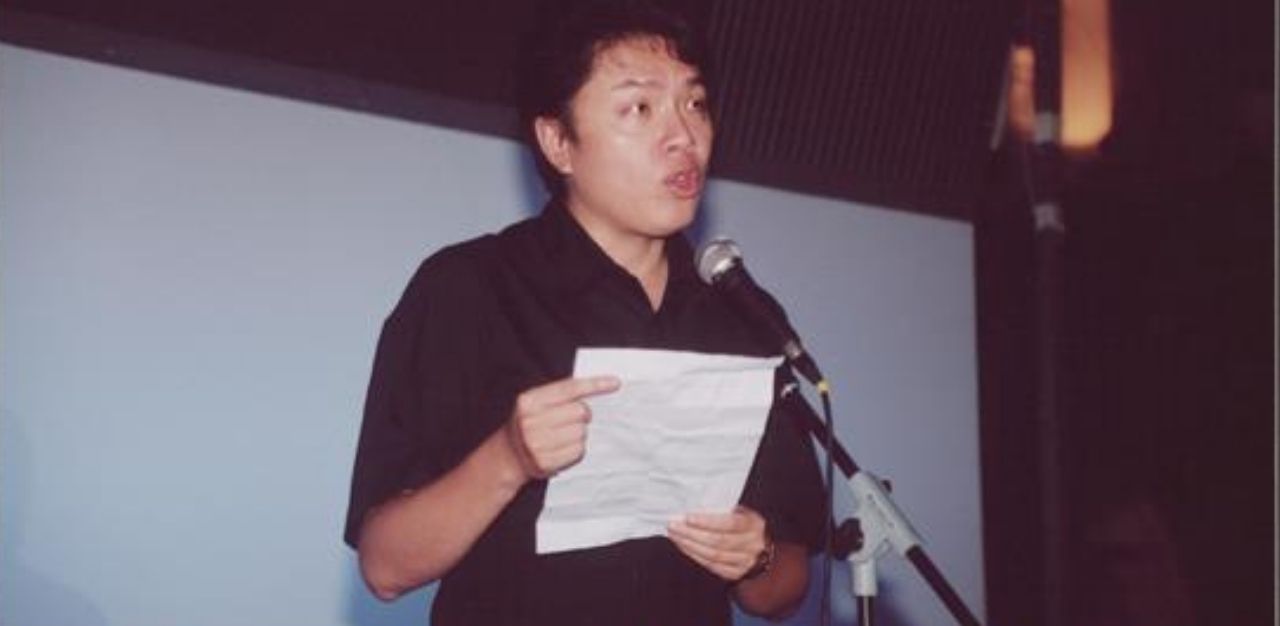
THG: Let’s talk about the attitude of being homeless. In straddling the digital and physical, why is it important to prepare for the day when you can reclaim your physical space?
OKS: One of the things that we’re trying is to get a little bit stronger, not to be so dependent on a physical space.
But I think the physical space is really more about the ability to be in the public sphere. When a physical space exists, it makes a public statement. It’s not just a free and easy digital or social media space, where everybody can be jostling and can be on the highway of information. A physical building still says a lot, and still becomes a recognisable landmark.
We see that there is a hunger for something live [in Singaporeans], but there is also disorientation because we are losing our public map, buildings have disappeared, and we don’t recognise where we are anymore… So I think this physical building still has value because it’s some kind of orientation anchor.
In the digital space, we have to pretend that we are in a room, [but] there’s no real room. So we’re presenting that we’re in a room. This sense of simulation, after a while, needs to be grounded through some kind of lived experience, [the] anchor of a physical building.
THG: In the meantime, because T:>Works had to go online due to the pandemic, has it seen different types of audience watch its performances and projects?
OKS: Yeah, I think so. It just means that now, people who are interested all over the world, who are following our work [and] have similar parallel experiences can log on and see what’s happening. Rather than just talking about it, or hearing about it being talked about on social media, they can be there with you, because the physical restraint of not being on a plane to join [performances overseas] is no longer the first barrier. Other things like maybe internet connectivity [are] the barrier.
THG: How would you argue for the essential role of the artists?
OKS: The first thing is for there to be a change in perception by the [National] Arts Council in relation to the arts. There was already a failed attempt, when there was a young artist who wrote a letter about this, a public statement about non-essential artists. At that time the National Arts Council refused to make a public statement, because there was a [very small] groundswell. Fifty people signed a letter to the National Arts Council [saying] ‘Hey, you have to do something because you represent the artists on a national level. And if you don’t say anything, it means that this survey which is inadequate is not corrected.’
So I think that the first obstacle that stands in the way, ironically, is how the National Arts Council looks at its relationship with artists. Because we see a fundamental issue here, where artists are the cultural assets of the National Arts Council. But we now seem to be the enemy, who in a way have to be controlled and managed, that we are delinquent children. I think that this is such a massive attitude issue which then leads to just more confrontations and the lack of ability to communicate in a fair and just way to audiences who don’t know anything, [the] public [who] don’t go outside of this conversation. So [in a] kind of metaphorical relationship [with] three players, there are members of the public, there is the National Arts Council, who is the voice of authority, and the artists, who seem to be the unmanageable rebel child. This is the relationship that’s being played out in Singapore right now.
That’s what the public sees, that these ‘brats’ are getting money on a platter and they are biting the hand that feeds them. It’s a kind of self-fulfilling prophecy, of the arts council wanting to raise money for the arts, but [at] the same time wanting to control the arts. And in the end [the] public is left with a very negative impression of artists, because [they] believe the national voice.
THG: So in a good way, what’s happening with The Substation is making this dialogue more public and dynamic?
OKS: I think that it definitely is. But we have to realise that these are very long journeys ahead. It’s not going to be short-term victories. What I’m talking about seems like a very simple mindset shift. But there are lots of hurdles ahead. And this is justified in terms of [having] to be efficient [and] productive, rather than this whole question of [whether] the KPI [is] about efficiency and productivity rather than treasuring the legacy of what The Substation was. It was founded by an artist [the late Kuo Pao Kun] who said that this space is for worthy failures. [He] also [created] a situation of trust, that other artists came in and worked freely there. He created a free space.
Join the conversations on THG’s Facebook and Instagram, and get the latest updates via Telegram.
